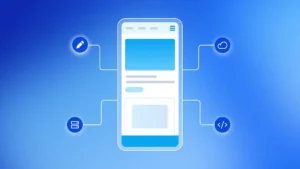Quantum computing for Software engineers is transforming the future of computing by merging the counterintuitive principles of quantum mechanics with software engineering. Unlike classical computers that use bits as 0s or 1s, quantum computers harness qubits that can exist simultaneously in multiple states. This property, along with quantum entanglement, promises to revolutionize problem-solving in fields such as optimization, cryptography, and machine learning. For software engineers, understanding quantum computing is becoming essential to innovate and stay competitive in this emerging technology landscape. This guide introduces the core concepts, programming tools, and practical strategies that software engineers need to begin integrating quantum computing into their workflows. Along the way, we highlight how courses like the Software Engineering, Agentic AI and Generative AI Course provide a structured path to mastering these skills and advancing careers in this exciting domain.
Understanding the Foundations of Quantum Computing
At its core, quantum computing leverages the physics of the quantum world to process information in fundamentally new ways. Key concepts include:
- Qubits: Unlike classical bits, qubits can be in a superposition of states—both 0 and 1 simultaneously—until measured. This superposition allows quantum computers to explore many possibilities in parallel.
- Quantum Gates: Analogous to classical logic gates, quantum gates manipulate qubits by changing their quantum states. Quantum circuits are built by sequencing these gates to perform algorithms.
- Entanglement: A uniquely quantum phenomenon where qubits become linked so that the state of one instantly influences another, regardless of distance. Entanglement is a powerful resource for quantum algorithms.
- Hybrid Quantum-Classical Systems: Current quantum computers, known as Noisy Intermediate-Scale Quantum (NISQ) devices, have limited qubits and are prone to errors. Hybrid systems combine classical computing’s robustness with quantum speedups by delegating specific tasks to quantum processors.
Understanding these principles lays the groundwork for software engineers to design and implement quantum algorithms effectively.
The Evolution and Current State of Quantum Computing
Quantum computing has moved from theoretical research to practical experimentation. We are currently in the NISQ era, characterized by quantum processors with tens to a few hundred qubits that suffer from noise and limited coherence times. Despite these challenges, significant progress in hardware and software is enabling meaningful quantum experiments.
Types of qubit technologies include superconducting circuits, trapped ions, and photonic systems, each with trade-offs impacting software engineering design and performance. Software engineers must be aware of these hardware nuances when developing quantum applications.
Quantum Programming Languages and Tools
Quantum programming introduces unique paradigms compared to classical coding. Some prominent languages and frameworks include:
- Qiskit: An open-source Python-based framework by IBM that enables developers to build quantum circuits, run simulations, and execute code on real quantum hardware via cloud access.
- Q#: Developed by Microsoft, Q# is designed explicitly for quantum programming with strong integration into classical languages like C# and Python.
- Cirq: Google’s Python library for designing, simulating, and running quantum circuits, especially suited for NISQ devices.
These tools abstract complex quantum mechanics details and provide APIs to interact with quantum processors and simulators, making it easier for software engineers to experiment without deep physics expertise.
Practical Quantum Software Engineering: Challenges and Strategies
Developing quantum software requires new skills and approaches:
- Problem Decomposition: Many real-world problems must be broken down into classical and quantum parts. For example, classical computers preprocess data, while quantum processors tackle specific optimization or search subproblems.
- Quantum Circuit Design: Engineers must design circuits that optimize qubit usage, minimize error, and conform to hardware constraints like connectivity and gate fidelity.
- Error Mitigation and Noise Management: NISQ devices are noisy, so software must include error mitigation techniques, such as zero-noise extrapolation or error-correcting codes, to improve result reliability.
- Debugging and Testing: Quantum simulators like Qiskit Aer allow developers to test algorithms on classical machines before execution on quantum hardware, helping catch logical errors and optimize performance.
Mastering these skills is critical to harnessing quantum advantage—the point where quantum computers outperform classical ones for practical problems.
Emerging Trends: Quantum Machine Learning and Beyond
Quantum machine learning (QML) combines quantum computing with machine learning algorithms to potentially improve model efficiency and accuracy. While still nascent, QML promises breakthroughs in data analysis, pattern recognition, and AI model training. Other trends include:
- Quantum APIs and Cloud Access: Platforms such as IBM Quantum and AWS Braket democratize access to quantum hardware. These services provide APIs for job submission, result retrieval, and integration into classical workflows.
- Hybrid Quantum-Classical Algorithms: Algorithms like the Quantum Approximate Optimization Algorithm (QAOA) combine classical optimization with quantum processing for tasks like supply chain logistics and portfolio optimization.
Real-World Applications and Business Impact
Quantum computing is already impacting industries:
- Supply Chain Optimization: Quantum algorithms can explore vast solution spaces faster than classical methods, improving logistics and resource allocation.
- Material Science and Chemistry: Simulating molecular interactions on quantum computers accelerates discovery of new materials and drugs.
- Cryptography: Quantum computers threaten current encryption but also enable new quantum-safe cryptographic protocols.
IBM Quantum exemplifies how businesses leverage quantum platforms to solve complex problems. Their cloud-accessible quantum services empower developers to prototype and deploy quantum-enhanced applications.
How Software Engineers Can Get Started
To build expertise in quantum computing for software engineers, consider the following steps:
- Build a Strong Foundation: Learn basic quantum mechanics concepts and familiarize yourself with linear algebra and probability theory relevant to quantum states.
- Explore Quantum Programming: Start coding with frameworks like Qiskit or Q# and experiment with quantum simulators to understand circuit design and quantum gates.
- Engage with Hybrid Systems: Practice decomposing problems into classical and quantum parts and learn to integrate quantum API calls into software workflows.
- Join the Community: Participate in forums, hackathons, and conferences to stay current with technology trends and collaborate with peers.
- Advance Your Skills with Structured Learning: Enroll in comprehensive courses like the Software Engineering, Agentic AI and Generative AI Course, which combines theoretical foundations, hands-on quantum programming, and AI integration, supported by industry partnerships and internships.
Measuring Success in Quantum Projects
Evaluating quantum solutions involves metrics such as:
- Computational Speedup: Comparing quantum and classical runtimes for the same problem.
- Error Rates and Fidelity: Tracking qubit error rates and gate performance to assess hardware and algorithm improvements.
- Practical Impact: Measuring business or research outcomes, like cost savings or scientific breakthroughs.
Continuous analytics and feedback loops help refine quantum algorithms and hardware design.
FAQs
- 1. What is quantum computing?
- Quantum computing uses qubits that can exist in superposition and entanglement, enabling new ways to process information beyond classical bits.
- 2. What are quantum algorithms?
- These are algorithms designed to exploit quantum phenomena for faster or more efficient problem-solving, including Grover’s search and Shor’s factoring algorithms.
- 3. How do quantum-classical hybrids work?
- They combine classical computing for data handling and quantum processors for solving specialized subproblems, maximizing overall system efficiency.
- 4. What role do quantum simulators play?
- Quantum simulators run quantum algorithms on classical hardware for testing and debugging before deploying on real quantum machines.
- 5. How can software engineers learn quantum computing?
- By studying quantum principles, practicing with quantum programming languages, engaging with hybrid systems, and pursuing courses like the Software Engineering, Agentic AI and Generative AI Course.
- 6. What are the applications of quantum machine learning?
- Quantum machine learning aims to improve machine learning model training and inference efficiency through quantum algorithms.
Quantum computing for software engineers is a fast-evolving frontier with immense potential. By building foundational knowledge, practicing with modern tools, and leveraging comprehensive educational programs, developers can position themselves at the cutting edge of this transformation. The Software Engineering, Agentic AI and Generative AI Course offers a unique blend of quantum computing fundamentals, AI integration, and practical experience, making it an ideal pathway for software engineers eager to lead in the future of computing.







